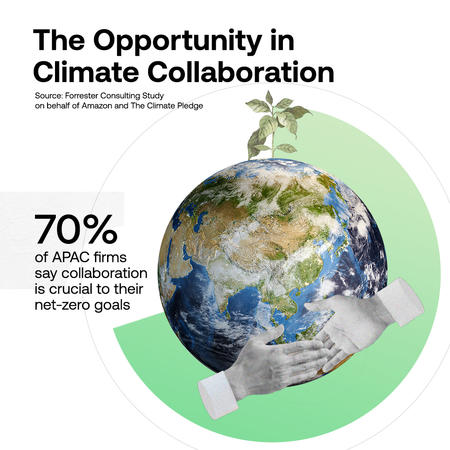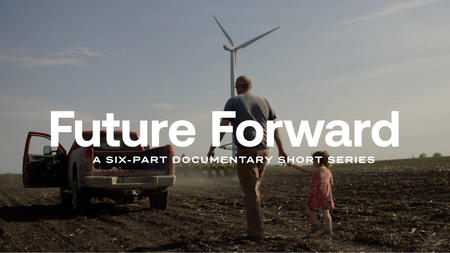The Asia Pacific region (APAC) is home to some of the world's fastest growing economies and populations. A 2022 World Bank article highlighted that 13 out of the 30 countries most vulnerable to the impacts of climate change are in APAC. Recent APAC disasters like the floods in Pakistan that submerged a third of the country, or the bush fires in Australia that have burned millions of acres of land and devastated wildlife, cost these countries billions of dollars in damages. The APAC region requires significant investments in projects to both mitigate and adapt to the increasing impacts of climate change: a 2023 study by the Asia Society Policy Institute highlighted that around US$70 trillion is needed in APAC to achieve net-zero carbon emissions by mid-century. This is where the private sector can play a bigger part.

As of August 2022, 39 out of the 49 countries in APAC have made carbon neutrality and net-zero carbon pledges, and have started to develop enabling frameworks to support the implementation of their commitments. Even then, we're lagging in our efforts to limit temperature rise to 1.5 degree Celsius, as pursued by the Paris Agreement in 2015, and more urgent action is needed in order to drastically cut emissions and prevent future catastrophe. Action by the private sector is critical to accelerating these goals as well as to build further resilience. And businesses agree: a 2022 survey commissioned by The Climate Pledge and Amazon revealed that 75% of businesses in APAC consider "sustainability transformation" and "climate action" among their top business priorities, and 70% say collaboration is crucial to their net-zero carbon goals. Indeed, such a transformation is a monumental task that cannot be achieved in silos; collaborative action is necessary to drive demand signals and rapidly scale investment into the implementation of climate action projects, such as the transition to clean energy. Collaborating with peers, other sectors, industry experts, and think-tanks can help companies combine resources, apply innovative thinking, drive new climate change mitigation projects, and thereby move faster towards net-zero carbon.

One platform dedicated to collaboration is The Climate Pledge. It was co-founded by Amazon and Global Optimism, a social enterprise led by Christiana Figueres, the former UN chief and architect of the Paris Agreement. Signatories of the Pledge commit to reaching net-zero carbon emissions by 2040, a decade ahead of the timeline established by the Paris Agreement. The Pledge harnesses the power of collaboration to tackle climate change and drive innovation, while also maximizing cross-sector learnings and cross-utilization of resources. This can be in the form of knowledge sharing, collective action, or partnerships to invest in pilot projects that aid the transition to lowering carbon. In APAC, more companies are rising to the challenge by joining the Pledge, with signatories including Canva, Infosys, Mahindra Logistics, NEC Corporation, GoTo and Terrascope.
Pledge signatories work together on matters including sustainable transportation, clean energy, circular economy, built environment, and supply chain emissions. For example: Amazon and Pledge signatories Unilever and A.P. Møller - Mærsk A/S worked with the World Business Council for Sustainable Development (WBCSD), the Smart Freight Center (SFC), the World Economic Forum (WEF), and McKinsey to co-develop and launch guidance on the quantification of logistics emissions. The guidance aims to increase transparency and data sharing across the value chain for logistics companies.

Watch The Climate Pledge's Future Forward documentary series
Together, the Pledge signatories are trailblazing paths to a cleaner future through decarbonization, and demonstrating to other companies that a net-zero carbon journey is both possible and crucial. Multiple examples of this work are brought to life in Future Forward, an insightful docuseries featuring Climate Pledge businesses pioneering industry innovation on the front lines of climate change.
This is the decisive decade for climate action. Time is of the essence. While conscious corporations are leading individual initiatives on climate, the most effective way forward is to collaborate with like-minded companies with access to innovation, experts, and knowledge, in order to accelerate and scale action to achieve this shared vision together.






